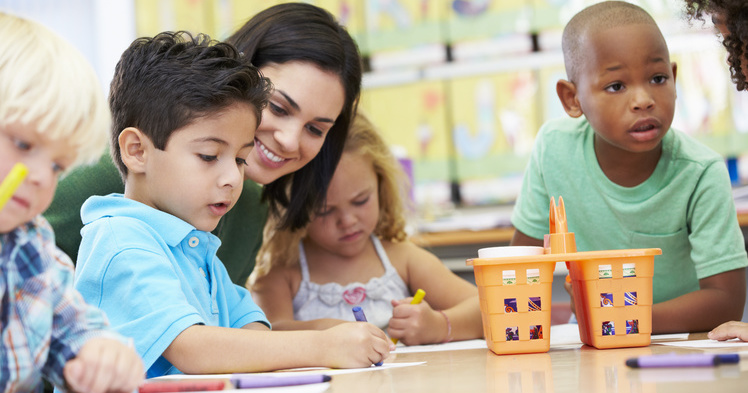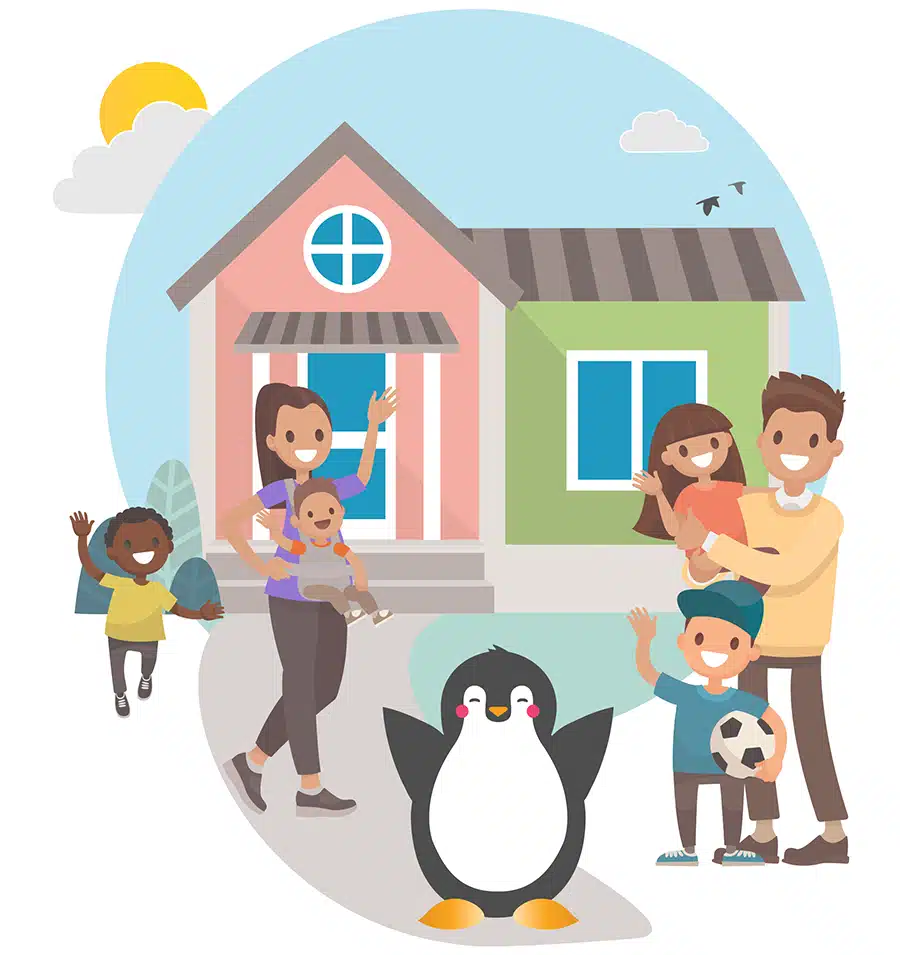How Day Care Can Improve Your Youngster's Development and Social Skills
Past the sensible factors to consider of child care, day care facilities offer a structured setting that can cultivate a kid's cognitive, social, and emotional growth. By exploring just how day treatment can affect different aspects of a youngster's growth, we can get important insights right into the possible benefits that structured very early childhood years programs might use.
Cognitive Advancement Advantages
Enhancing cognitive development, daycare programs use structured tasks and atmospheres that promote children's psychological growth and learning capacities. These programs play a vital function in cultivating different cognitive abilities in children. Via taking part in age-appropriate tasks such as challenges, storytelling, and instructional games, youngsters can improve their problem-solving capacities, vital thinking abilities, and memory retention.
Furthermore, the social communications within a day care establishing offer possibilities for children to exercise problem, communication, and arrangement resolution, all of which add to their cognitive development. By involving in team activities, kids find out to share, take turns, and work collaboratively, promoting the growth of vital cognitive abilities.
Moreover, the exposure to a varied variety of experiences and stimuli in a day care setting can significantly affect a kid's cognitive growth. Children are introduced to new ideas, concepts, and perspectives, which can broaden their understanding of the world around them and promote their inquisitiveness and creativity. In general, daycare programs play a crucial duty in enhancing cognitive development in young children, setting a strong structure for future scholastic success.
Social Abilities Improvement
In enhancement to cultivating cognitive growth, daycare programs also play an essential function in nurturing kids's social skills. Social skills are important for a kid's general advancement and success in different elements of life. Daycare offers a structured atmosphere where kids learn to communicate with peers, teachers, and other adults, aiding them create crucial social abilities such as interaction, teamwork, compassion, and analytical.
Through group tasks, play, and arranged games, children in day care find out just how to share, take turns, and work collaboratively with others. These experiences help children construct relationships, discover to fix conflicts peacefully, and create a feeling of empathy towards others' point of views and feelings. In addition, remaining in a diverse environment reveals kids to different histories, cultures, and personalities, cultivating tolerance and acceptance.
Daycare settings likewise offer possibilities for kids to exercise social rules, good manners, and communication abilities, preparing them for future social interactions in college and beyond. On the whole, the social skills gotten in daycare can have a lasting effect on a child's capability to construct connections, browse social situations, and grow in various social setups.
Psychological Intelligence Development
The cultivation of emotional knowledge in youngsters through engagement in daycare programs is a crucial part of their holistic growth. Day care settings supply youngsters with chances to engage with caretakers, educators, and peers, cultivating the development of emotional understanding, compassion, and social abilities. Via structured activities and everyday communications, youngsters find out to identify and manage their emotions, comprehend the sensations of others, and connect properly.

Behavioral Renovation
Through constant engagement in daycare programs, youngsters often experience significant behavior improvements that favorably influence their overall advancement. Day treatment environments offer organized routines and constant regulations, which aid children discover essential behavioral skills such as adhering to guidelines, sharing, and respecting others. The interactions with peers and caretakers in a daycare setup additionally contribute to the development of vital social abilities, consisting of interaction, conflict resolution, and compassion.

Study has revealed that kids that go to daycare commonly exhibit less behavioral problems and demonstrate much better self-regulation compared to those that do not. Generally, the caring and structured setting of day care programs sustains children in establishing essential behavior abilities that are useful for their future social communications and general health.

Preparation for Academic Success
Youngsters who benefit from boosted behavior in daycare settings are likewise well-prepped for scholastic success via the structured knowing atmospheres and encouraging communications provided. Day care centers use an array of tasks that boost cognitive development, such as storytelling, puzzles, and arts and crafts, every one of which assistance youngsters boost their analytic abilities and creativity. These tasks also introduce children to basic academic concepts in a fun and engaging way, laying a solid structure for future learning.
Moreover, the social interactions that children experience in daycare setups aid them create critical abilities for scholastic success, such as problem, team effort, and communication resolution. By communicating with their caretakers and peers, youngsters discover exactly how to express their ideas and concepts efficiently, collaborate on tasks, and browse social circumstances, all of which are essential for success in a class setting.
Conclusion
In conclusion, daycare can considerably benefit a youngster's advancement by enhancing cognitive abilities, enhancing social interactions, cultivating emotional intelligence, forming behavior, and preparing them for scholastic success. It offers a structured setting that encourages development and understanding in numerous aspects of a youngster's life. Day care is a valuable source for parents looking for to support their kid's overall advancement and future success.
Beyond the functional considerations of child care, day care centers offer an organized setting that can promote a kid's cognitive, social, and emotional growth.In addition to cultivating cognitive advancement, day treatment programs also play a critical childcare services function in supporting children's social skills. Day treatment offers an organized setting where kids find out to connect with peers, instructors, and various other adults, assisting them create essential social skills such as interaction, cooperation, empathy, and analytic.
Day treatment settings offer youngsters with opportunities to communicate with caregivers, instructors, and peers, promoting the development of emotional understanding, compassion, and social abilities.In verdict, day care can significantly benefit a kid's advancement by boosting cognitive abilities, boosting social communications, fostering emotional intelligence, shaping habits, and preparing them for academic success.